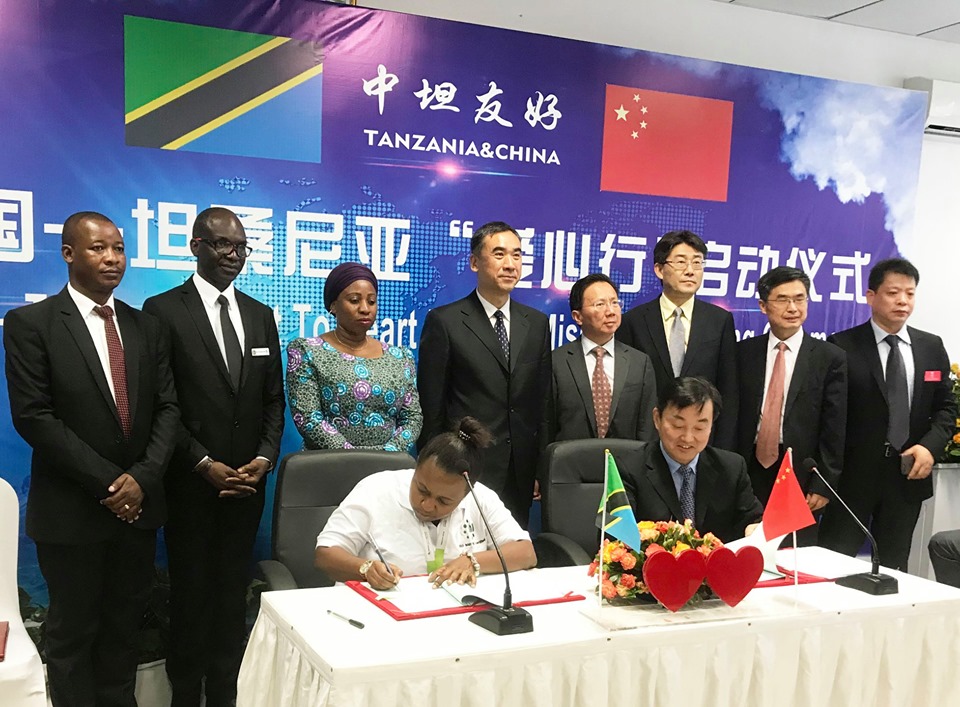
IHI inks $1.7m deal for China-Tanzania latest initiative

Ifakara Health Institute and China’s National Institute for Parasitic Diseases (NIPD) have signed a contract worth $1.7 million, equivalent to Tshs.3.7 billion, for Phase 2 of the China-Tanzania project on malaria control in southern Tanzania. Acting Chief Executive Director, Dr. Sally Mtenga, represented IHI during the signing and Dr. Xiao-Nong Zhou signed for the NIPD. The deal was signed on July 26 in Dar es Salaam and official contract dates are July 2019 to June 2021. The signing followed a visit to project sites in Rufiji and Kibiti districts on Thursday July 25 2019 by the Chinese Deputy Minister for Health, Li Bin and NIPD officials who were accompanied by the Minister for Health, Ummy Mwalimu. The China-Tanzania malaria project Principal Investigator, Dr. Prosper Chaki, led the IHI team during the visit. On July 27, project partners, including IHI, Bill and Melinda Gates, NIPD, WHO, Harvard, and National Malaria Control Program (NMCP), met at IHI Mikocheni Office, to update themselves on various issues regarding their cooperation. The meeting, chaired by Dr. Zhou, discussed challenges encountered during phrase 1 of the project and ways to avoid them during this phase. It also approved the roadmap and protocol for implementation of Phase 2 of the project. Background The project, which is being implemented in Rufiji, is a collaborative program - part of the China-UK -Tanzania initiative (GHSP-CS-OP4-D02) - that was jointly implemented from April 2015 to June 2018 by the NIPD, IHI and other partners. The program’s target was to reduce malaria by 30% by strengthening malaria control capacity at the local level and implementing the Chinese experience in malaria control and elimination in combination with the World Health Organization Test, Treat and Track (T3) strategy. Through joint efforts of the Chinese and the Tanzanian teams, a new approach for malaria control in areas of moderate or high transmission was developed, informed by the experience from the Chinese 1-3-7 surveillance and response system for fast tracking malaria elimination. The new approach named 1,7-malaria Reactive Community Testing and Response (1.7-mRCT-Response) that utilized evidence from the routine HMIS data and vector surveillance results to decide on the priority clusters (administrative villages/hamlets in Tanzania) to go and conduct community-wide testing and treatment on a weekly basis. Application of the novel approach, which had not been used anywhere - neither in China nor in Africa – showed impressive results by cutting down malaria by up to 81% in intervention areas. During Phase 2 of the project, the team will make additional authentication of the results and estimation of the overall benefits of the intervention in malaria control before scaling up the approach in Tanzania and potentially to other malaria endemic areas in Africa. #
